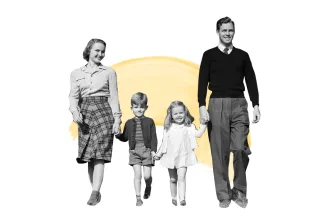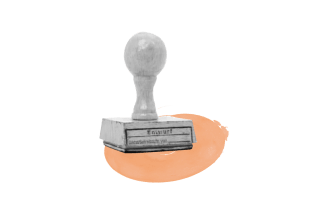Name Directory by Last Name: Last Names Starting with Pa
Explore millions of names to discover rich genealogical details and uncover your family's history
Enter a name to research
Last name meanings and origins
- Parker
The surname Parker has its historical roots in England, deriving from the Old French word "parc," meaning "enclosure" or "park." It originally referred to someone who was a keeper of a park or a game preserve, a role that was particularly significant in medieval society when hunting was a privilege of the nobility. The surname first appeared in written records in the 13th century, with variations such as "de la Parker" indicating a connection to a specific location or estate.
- Palmer
The surname Palmer has its historical roots in medieval England, deriving from the Old French word "palmer," which referred to a pilgrim who had returned from the Holy Land, often bearing palm fronds as a symbol of their journey. The name first appeared in the 12th century, during a time when pilgrimage to Jerusalem was a significant religious practice.
- Patterson
The surname Patterson has its roots in the patronymic tradition, deriving from the given name "Patrick," which is of Latin origin, meaning "noble" or "nobleman." The name first appeared in Scotland and Ireland, with early records dating back to the 12th century. It was commonly used to denote "son of Patrick," reflecting the social structure of the time where lineage and familial ties were significant.
- Payne
The surname Payne has its historical roots in medieval England, deriving from the Old French personal name "Pagan," which itself comes from the Latin "paganus," meaning "countryman" or "rural dweller." The name first appeared in records during the Norman Conquest of England in the 11th century, as many French names were introduced into the English lexicon. Over time, the surname evolved, with variations such as Pain, Payn, and Paine emerging.
- Page
The surname Page has its historical roots in medieval England, deriving from the Old French word "page," which referred to a young servant or attendant, particularly in noble households. The name first appeared in the 12th century, often associated with individuals who served in the courts of the nobility.
- Parsons
The surname Parsons has its historical roots in England, deriving from the Middle English term "parson," which referred to a parish priest or clergyman. The name likely emerged in the medieval period, around the 12th century, as a way to denote individuals who held this ecclesiastical role.
- Paul
The surname Paul has deep historical roots, tracing back to the Latin name "Paulus," which means "small" or "humble." It first appeared in ancient Rome and was popularized by Saint Paul, one of the most significant figures in early Christianity. The name became widespread throughout Europe during the Middle Ages, particularly in Christian communities, as it was associated with piety and moral integrity.
- Parks
The surname Parks has its historical origins in England, deriving from the Middle English word "perke," which means "enclosure" or "park." This term referred to a fenced area used for hunting or grazing, often associated with the estates of the nobility. The surname likely emerged in the medieval period, with its earliest recorded instances appearing in the 13th century.
- Patrick
The surname Patrick has deep historical roots, primarily derived from the Latin name "Patricius," meaning "noble" or "of noble birth." It is most famously associated with Saint Patrick, the patron saint of Ireland, who is credited with bringing Christianity to the country in the 5th century. The name gained prominence in Ireland and among the Irish diaspora, particularly during the Middle Ages, as it became a common given name that eventually transitioned into a surname.
- Patton
The surname Patton has its historical roots in medieval England and Scotland, deriving from the Old French personal name "Patin," which is a diminutive of "Patrice," meaning "noble" or "nobleman." The name first appeared in written records in the 12th century, particularly in regions where the Normans settled after the Conquest of 1066. Over time, the surname evolved, with various spellings such as "Pattin" and "Patten" appearing in historical documents.
- Park
The surname Park has its historical roots primarily in England and Scotland, deriving from the Old English word "pearroc," which means "enclosure" or "park." This term was often used to describe a fenced area for keeping animals, particularly deer, and thus the surname likely originated as a topographic name for someone who lived near such an enclosure or worked within it. The name can be traced back to the medieval period, with its earliest recorded instances appearing in the 13th century.
- Parry
The surname Parry has its historical roots in Wales, deriving from the Welsh personal name "Pryderi," which means "care" or "concern." The name first appeared in written records during the medieval period, particularly in the 13th century, and is often associated with the region of Pembrokeshire. Over time, the surname evolved, with variations such as "Perry" and "Parrie" emerging, reflecting the linguistic shifts and regional dialects within Wales and England.
- Paterson
The surname Paterson has its historical roots in Scotland, deriving from the given name "Patrick," which itself comes from the Latin "Patricius," meaning "noble" or "of noble birth." The name first appeared in written records in the 12th century, particularly in the regions of Fife and the Lothians. Over time, the surname evolved, with variations such as Patterson and Pattison emerging, reflecting regional dialects and linguistic shifts.
- Parrish
The surname Parrish has its historical roots in England, deriving from the Old French word "paroisse," which means "parish." This term was adopted into Middle English, reflecting the ecclesiastical structure of the time, where communities were often organized around a parish church. The surname likely first appeared in the medieval period, around the 12th century, as a way to denote individuals who were associated with or lived near a particular parish.
- Paine
The surname Paine has its historical roots in medieval England, deriving from the Old French personal name "Pagan," which itself comes from the Latin "paganus," meaning "countryman" or "peasant." The name first appeared in records during the Norman Conquest of England in the 11th century, as many French names were introduced into the English lexicon. Over time, the surname evolved, with variations such as Payne and Pann, reflecting regional dialects and phonetic changes.
- Pace
The surname Pace has its historical roots in the Latin word "pax," meaning peace, which suggests that it may have originally been a nickname for someone who was peaceful or a peacemaker. The surname first appeared in medieval England and Italy, with records dating back to the 13th century.
- Parkinson
The surname Parkinson has its historical roots in England, deriving from the medieval given name "Parkin," which itself is a diminutive of "Peter." The name is believed to have originated in the 13th century, with the earliest recorded instances found in Yorkshire. The suffix "-son" indicates "son of," thus Parkinson essentially means "son of Parkin." Historically, individuals bearing this surname were often associated with agricultural roles, as many early bearers were likely to have lived near or worked on parks or enclosed lands, which were common in medieval England.
- Paris
The surname Paris has its historical roots in ancient Greece and Rome, deriving from the Latin name "Parisius," which referred to the Parisii tribe, a Celtic group that settled in the region around the Seine River. The name is often associated with the city of Paris, which became a significant cultural and political center in Europe.
- Parr
The surname Parr has its historical roots in England, with its earliest appearances dating back to the medieval period. The name is believed to derive from the Old French word "parre," meaning "a pear tree," which suggests a connection to nature or a specific geographical feature.
- Parkes
The surname Parkes has its historical origins in England, deriving from the Middle English word "perke," which means "park." This term referred to an enclosed area of land, often used for hunting or grazing livestock, and was a common feature in medieval England. The surname likely emerged in the 13th century, initially as a locational surname for individuals who lived near or worked in such parks.
- Pate
The surname Pate has its historical roots primarily in England and France, with its earliest appearances dating back to the medieval period. The name is believed to derive from the Old French word "pate," meaning "paw" or "foot," which may have been used as a nickname for someone with a notable physical characteristic or perhaps a reference to a profession related to animals, such as a butcher or a hunter.
- Painter
The surname Painter has its historical roots in the occupational title derived from the Old French word "peintre," which means "painter" or "one who paints." This surname first appeared in England during the medieval period, particularly after the Norman Conquest of 1066, when many French words and occupations were adopted into the English language. The name was often associated with individuals who were skilled in the art of painting, whether it be in the context of creating artworks, decorating buildings, or even working as sign painters.
- Paulson
The surname Paulson has its roots in the Scandinavian region, particularly deriving from the patronymic tradition common in countries like Sweden, Norway, and Denmark. The name literally means "son of Paul," with "Paul" being a given name of Latin origin, meaning "small" or "humble." The use of patronymics became prevalent in the Middle Ages, and surnames like Paulson began to appear around the 14th century as families sought to establish lineage and identity.
- Paulsen
The surname Paulsen has its historical roots in Scandinavia, particularly in Denmark and Norway, where it is derived from the given name "Paul," which itself comes from the Latin "Paulus," meaning "small" or "humble." The suffix "-sen" translates to "son of," indicating a patronymic lineage. The surname first appeared in the medieval period, with records dating back to the 14th century.
- Patten
The surname Patten has its historical roots in England, with its earliest appearances dating back to the medieval period. It is believed to derive from the Old French personal name "Patin," a diminutive of "Patrice," which itself comes from the Latin "Patricius," meaning "noble" or "of noble birth." The surname likely emerged as a patronymic, indicating lineage or descent from an ancestor named Patin or Patrice.
- Partridge
The surname Partridge has its historical roots in England, with its earliest appearances dating back to the medieval period. The name is derived from the Old French word "pertriz," which means "partridge," a type of bird that was commonly hunted and consumed during that time.
- Parent
The surname "Parent" has its historical roots primarily in France, where it is derived from the Old French word "parent," meaning "relative" or "kinsman." The name likely originated as a descriptive term for someone who was a family member or had a close relationship with others in their community. The earliest records of the surname can be traced back to the medieval period, particularly in regions such as Normandy, where surnames began to be adopted more formally.
- Pacheco
The surname Pacheco has its historical roots in the Iberian Peninsula, particularly in Spain and Portugal, where it first appeared in the medieval period. The name is believed to derive from the Latin personal name "Pachus," which itself is thought to be a diminutive of "Paco," a name associated with the Spanish word for "peace." Over time, the surname became associated with various noble families and landowners, particularly in regions such as Castile and León.
- Padilla
The surname Padilla has its roots in Spain, particularly in the region of Castile. It is derived from the Spanish word "padilla," which means "shallow pan" or "dish," and is thought to have originally referred to a geographical feature or a type of occupation related to cooking or serving food.
- Parish
The surname Parish has its roots in medieval England, deriving from the Old French word "paroisse," which means "parish" or "local church community." It first appeared in the 12th century, particularly in areas where the Norman influence was strong following the Conquest of 1066. The name was often associated with individuals who held roles within the church or were connected to a specific parish, reflecting the importance of local governance and community in medieval society.
- Paxton
The surname Paxton has its historical roots in England, particularly in the northern regions, with its earliest recorded instances dating back to the medieval period. The name is derived from the Old English elements "pæcc," meaning "peace," and "tun," meaning "town" or "settlement." Thus, Paxton can be interpreted to mean "peaceful town" or "settlement of peace." Over time, the surname became associated with various occupations, particularly in agriculture and land management, as many bearers of the name were likely to have been landowners or farmers in these peaceful settlements.
- Packard
The surname Packard has its historical roots in England, with its earliest appearances dating back to the medieval period. The name is believed to derive from the Old French word "pacard," which means "a packer" or "one who packs goods," indicating a possible occupational origin for those involved in trade or transport.
- Payton
The surname Payton has its historical roots in England, where it is believed to have originated as a locational surname derived from various places named Payton, particularly in Devon and Somerset. The name itself is thought to derive from the Old English elements "pæga," meaning "a pagan" or "a heathen," and "tun," meaning "enclosure" or "settlement." This suggests that the original bearers of the surname may have been associated with a settlement that had pagan connotations or was located in a heathen area.
- Paige
The surname Paige has its historical roots in medieval England, deriving from the Old French word "page," which referred to a young servant or attendant, particularly in noble households. The name likely emerged in the 12th century, following the Norman Conquest of England in 1066, when many French words and customs were integrated into the English language and society.
- Patel
The surname Patel has its roots in the Indian subcontinent, particularly among the Gujarati community. Historically, the term "Patel" is derived from the Gujarati word "patel," which means "village headman" or "landowner." The surname first appeared in the western Indian state of Gujarat, where it was associated with individuals who held significant social and economic roles within their communities, often overseeing agricultural production and local governance.
- Parrott
The surname Parrott has its historical roots in England, with its earliest appearances dating back to the medieval period. It is believed to be derived from the Old French word "perrot," a diminutive of "Pierre," meaning "rock" or "stone," which was brought to England by the Normans after the Conquest of 1066.
- Paton
The surname Paton has its historical roots in Scotland, particularly in the Lowlands, where it is believed to have originated from the medieval given name "Paton," a diminutive of "Patrick." The name Patrick itself derives from the Latin "Patricius," meaning "noble" or "of noble birth." The earliest recorded instances of the surname date back to the 14th century, with individuals bearing the name often associated with agricultural or artisan occupations, reflecting the agrarian society of the time. The surname Paton may also have connections to the Gaelic word "pàdruig," which translates to "of Patrick," indicating a familial or ancestral link to St.
- Parnell
The surname Parnell has its roots in medieval England and is believed to derive from the given name "Parnell," which itself is a diminutive form of "Petronella" or "Pernelle." The name first appeared in historical records during the 12th century, particularly in the context of the Norman Conquest, which brought a wave of French influence to England. The surname is often associated with individuals who held roles in the church or landholding gentry, reflecting the social structures of the time.
- Pap
The surname Pap has its historical roots primarily in Eastern Europe, particularly in regions that are now part of Hungary and Romania. The name is believed to derive from the Hungarian word "pap," meaning "priest," which indicates a possible connection to religious or clerical roles in society.
- Pasha
The surname Pasha has its roots in the Ottoman Empire, where it was originally a title of high rank, often bestowed upon governors or military leaders. The term "Pasha" derives from the Turkish word "paşa," which signifies a person of authority or nobility.
Start your family tree for free
Start by entering a few names and MyHeritage will do the rest, so you can make meaningful discoveries
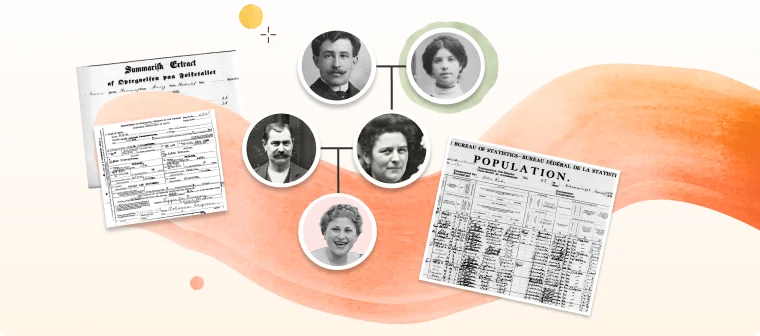
Explore historical records
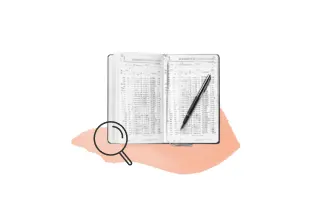
Explore 1,810,427,080 census and voter list records to get a detailed snapshot of your ancestors' lives. Discover names, ages, occupations, family relationships, residences, and much more.

Explore 4,647,704,406 birth, marriage, and death records. Uncover valuable details about major family milestones and find names, dates, places, occupations, and residences of your ancestors and relatives.

Search 266,544,192 military records and discover the stories of courage and resilience in your family history. Military records include enlistment dates, ranks, locations, and even physical descriptions.
Embark on a fascinating journey to discover your family history
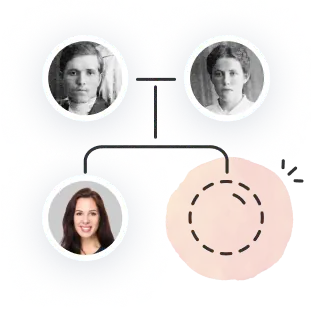
Start by adding a few names. Myheritage's automatic matching technology will help you expand your family tree and delight you with new discoveries.

Reveal your ethnic origins and find relatives you never knew existed with our simple DNA kit.
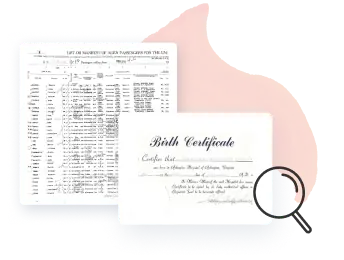
Dive into MyHeritage's international collection of 36.7 billion historical records - start with a name of an ancestor and see what our collections can reveal about your family history.
About MyHeritage

MyHeritage is the leading global platform for family history. It enriches the lives of people worldwide by enabling them to uncover more about themselves and where they belong. With a suite of intuitive products, billions of historical records, an affordable at-home DNA test, and AI-powered photo tools, MyHeritage creates a meaningful discovery experience that is deeply rewarding. The MyHeritage platform is enjoyed by tens of millions of people around the world who treasure and celebrate their heritage.

